DEK Technologies: The quiet Aussie tech success story
Meet the unlikely trio of software engineers behind a Melbourne firm that started as a side hustle before Ericsson made them all redundant. It took 20 years, but they got their sweet revenge.
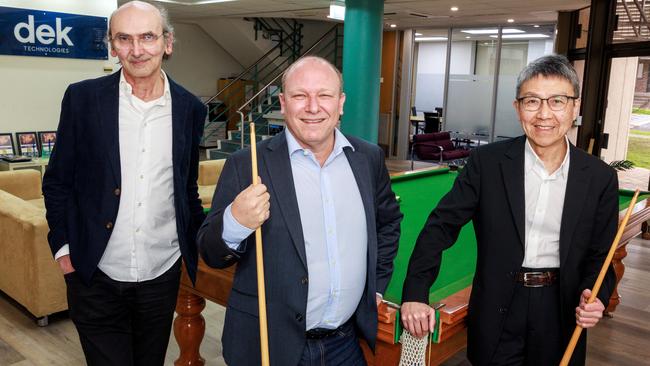
They are the migrants from Hong Kong and Bosnia and the son of Albanian tobacco and later mango and avocado farmers who have quietly built one of Australia’s technology success stories.
All because the trio were all once made redundant by Swedish giant Ericsson.
DEK Technologies was recently bought by New York Stock Exchange-listed software company Endava in a deal that could be worth up to $100m, making it something of an 20-year overnight success story.
Founders Drini Mulla, Eddie Yim and Kerim Tanovic (DEK is derived from the first letter of their given names) have generally avoided the limelight, and are based in Melbourne’s Broadmeadows – a long way from the bright lights of the CBD or upscale tech hubs.
But a little over two decades after starting DEK as a “side hustle” from their then day jobs at Ericsson, in the glory days of the first tech boom in the 1990s, the trio’s quiet success has come during a time when fortunes in their sector were being made at historically rapid pace before valuations started being slashed last year as the software shine wore off.
Befitting their humble beginnings, Mulla, DEK’s chief executive, says there was little interest from outside parties in their company for the best part of two decades.
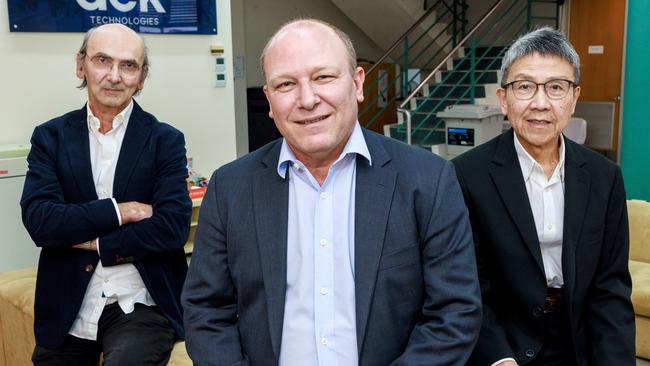
“Something happened during Covid though. There was a lot of equity around or something and we just had companies starting to approach us. We had Scandinavian companies, Indian companies, US, and the UK. It was a bit surprising because we hadn’t experienced it prior to that. And I don’t know how they found out about us. Probably through word of mouth.”
Endava had previously bought two other Australian tech firms, Newcastle’s Mudbath & Co in May and Lexicon last October, and announced the DEK deal in the second week of June. Even then, there was little fanfare. But based on comparable deals for similar-sized companies and revenue multiples, it is likely the DEK buy is worth about $100m.
Not that the trio of founders were expecting it.
Mulla says it even took DEK sometime to get its affairs in order and corporate structure right in order to be in a position to be acquired.
“We always liked the flexibility of being private and profit was our lowest priority. It was the customer and our employees that were our key focus points. And then if there’s anything left over for us, okay that was great. But those were our priorities and that probably helped us with getting additional customers because we had that strong focus on them.”
DEK now has more than 700 employees based in Australia, Vietnam and Sweden, and provides project and outsourcing and software engineering services to clients across sectors ranging from telecommunications to medical health, renewable energy and cloud computing.
All of which is a far cry from when a younger Mulla joined Ericsson’s graduate program back in 1991 and found himself working alongside Yim and Tanovic.
“We used to design chips at Ericsson and we were all in the hardware group. They had an R & D centre full of engineers. We were doing custom chips, like CPU (central processing unit) chips,” Mulla explains.
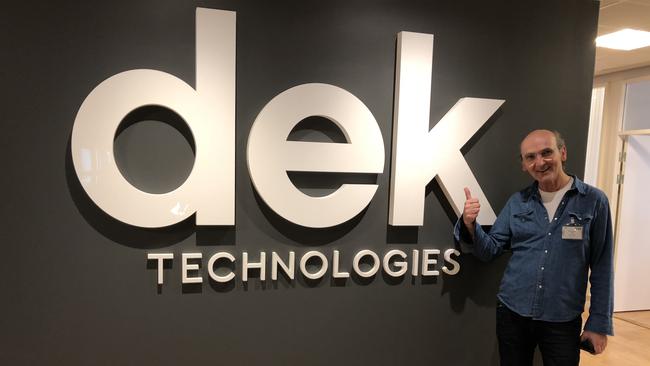
He had joined Ericsson at a time when it was recruiting 50 graduates annually, after growing up on his parents farm in Mareeba in Far North Queensland. Yim had moved to Australia from Hong Kong to work at Motorola before transferring to Ericsson, where Tanovic had arrived from the old Yugoslavia when the firm had advertised for workers in Australia and paid for he and his wife to move across the world.
“Eddie and I shared an office, and while he’s very humble Kerim was our best chip designer. Eddie was very good in the place and route (stage) of chip design. I was a bit of a nobody,” Mulla says with a laugh.
“When an opportunity came why wouldn’t you pick the best two people, who just happened to be friends. So it just sort of fell into place.”
Tanovic jokes that Mulla was “our Mick Jagger, who we pushed to the front” and was “the one to pull everything together.”
The 1990s were heady days as the tech sector grew and the use of mobile phones became more prevalent. The 2G (second generation) mobile network based on the GSM (Global System for Mobile Communication was common, but 3G was coming. Motorola had supplied chips for Ericsson, who – thinking 3G was about to take over – didn’t order enough for the continued demand for 2G.
“We were responsible for the boards that these chips were on in Australia, and they found themselves in a position where they were going to run out of chips,” Mulla says. “We heard one of the managers talking about it and we said we could redesign new chips to look exactly like the original ones. And in our spare time.”
To their surprise, the trio were told they could work on what was, as Tanovic calls it, their “side hustle” out of hours and Ericsson would pay them for their work.
A fledgling DEK was born.
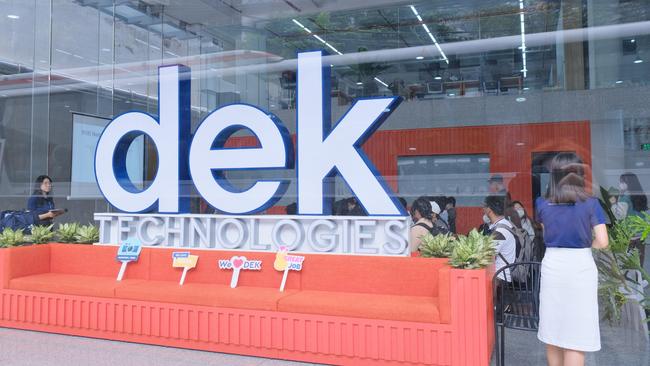
By 2003 though, the original tech boom was over and companies all over the world were shedding staff. The once thriving Ericsson factory and operations at Broadmeadows started being shut down, and 450 engineers were made redundant in stages.
Mulla remembers a time when many peers worked in restaurants or drove taxis to make ends meet. He and Tanovic and Yim, who went to NEC for a time, tried to drum up enough work with their redundancy proceeds to keep Mulla going with Dek.
“If you look at it, we probably started at the worst time,” Mulla says with a laugh.
Ericsson had tried to pass on some of their engineering knowledge to suppliers, which Mulla says was not particularly successful. So he attempted to recruit the top 10 per cent of the redundant engineers, flew to a deserted Stockholm in the middle of the European summer to pitch for work that would be outsourced to Dek.
“We eventually got enough for what was meant to be a 12 to 18 month thing, but because we had such good people – we probably ended up getting about 60 people who had been at Ericsson over time – it just kept going.”
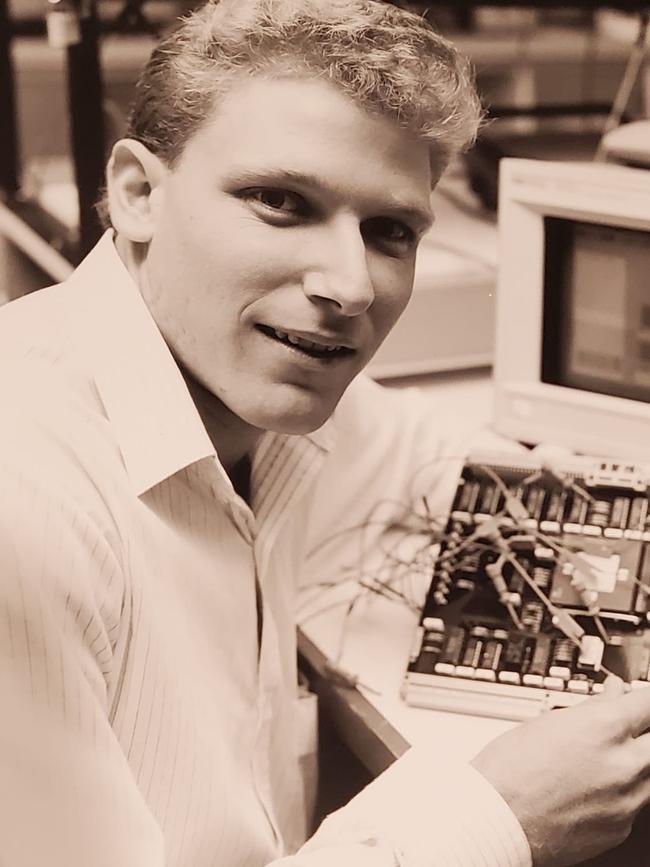
Contracts for more work would keep getting signed and with the need for a low-cost component for many new deals, about 15 years ago Dek established a base in Vietnam where it now has about 550 employees.
In Australia it still works out of a building that once housed Ericsson staff, giving it a touch of nostalgia and a pool table in the foyer is one of the few hints that is the home of a thriving tech firm.
“I mean, it is pure luck isn’t it,” Tanovic says with a chuckle when describing how the company originated.
Mulla says the trio never have had any formal management training, and he became CEO while the other two worked on more technical matters.
“We’ve never actually had a sales team either. We tried that, and weren’t very good at it. So a lot of our work is word of mouth. We’re high on competence and we’re big on relationships and trust. If we make a mistake we own it.
“We try to put ourselves in our customers’ shoes and think if we were on the other side what level of service would we want. We’re very prudent with our overheads.
“Maybe common sense can go a long way.”





To join the conversation, please log in. Don't have an account? Register
Join the conversation, you are commenting as Logout